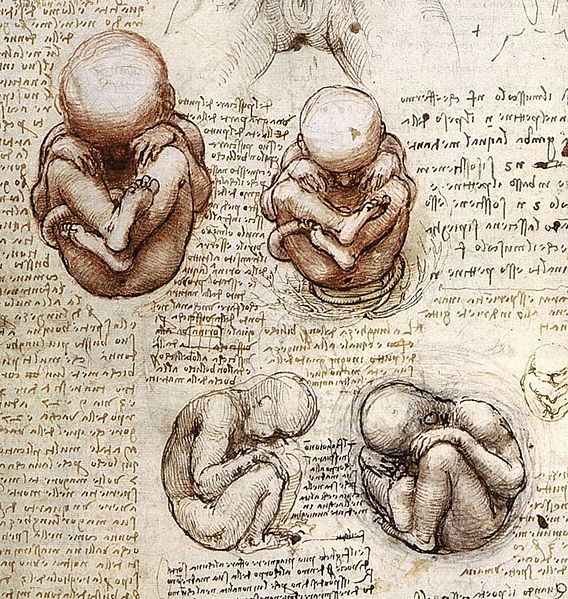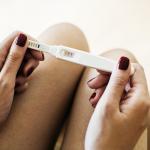by guest writer Alex Erickson
Anyone who has followed Donald Trump’s rhetoric since he entered the presidential race in 2016 knows he loves hyperbole and his recent comments calling all abortions “executions” are no exception. Whatever the instance, Trump’s rhetoric does presumably what he wants it to do: stir up conversation. This is certainly the case with Theresa Brown’s latest article for CNN, where she sets out to “explore the misapprehensions” that Trump’s statement is based on. Unfortunately for her, she falls into misapprehensions of her own.
Brown’s two main misapprehensions regarding personhood stem from biology and physiology. On biological grounds she claims that unborn exist in a symbiotic relationship with their mother, and are hence not “unique biological entities”. However, according to the definition of symbiosis, this relationship is “a long-term relationship between individuals belonging to two different species.” So, on purely definitional grounds, Brown’s argument falls flat. When two organisms of the same species reproduce, they produce an offspring of the same species, hence why humans do not (to my knowledge) give birth to pythons when they mate. Brown’s criticism that a fetus is not a “unique biological entity” also falls flat on this definition. On physiological grounds, Brown claims the unborn aren’t people because they “cannot live independently of their mothers.” Now, Brown writes this with reference to the fetus, but it seems to me this is equally true of post-natal children. A newborn infant is constantly relying on its mother for nourishment, which it would not be able to acquire itself if left alone. So, if Brown wants to be consistent, then newborn infants are not people either, and women should have just as much right to kill them as they would an unborn fetus. A similar argument could be made of the aged as well. There are many elderly people who for various reasons are dependent on others for their continued survival, hence why there are so many nursing homes. On Brown’s reasoning, it seems that they too should be eligible to “termination”.
Personhood, then, would seem to be independent of either biological or physiological dependence and instead depends on philosophy to be correctly understood. A human person has classically been defined as an individual human substance with a rational nature. What this means is that a human person is an individually existing entity which either is rational (meaning capable of self-reflection and abstract thought) or, more importantly, has the potentiality (meaning an inherent ability which will be realized if nothing impedes) to be so. This is certainly the case with the unborn. As established above, the fetus is certainly an individually existing entity, and certainly has the potential to be rational, which it will do given uninterrupted development. If this is the case, then it should be obvious that Brown’s assertion that “only a pregnant woman can determine” whether abortion is the correct choice is false. Because the unborn fetus is a person, and because the killing of any innocent person is inherently wrong, abortion is inherently wrong.
Brown’s errors on personhood cause her to misapply the Principle of Double Effect as well. She begins with framing the discussion in relation to end of life issues, but this comparison is wrong-headed. As Brown correctly notes, the Principle of Double Effect states that a morally good or neutral action that has the side effect of causing some harm may be done if the harm is not directly intended. The stock example for this is ectopic pregnancies, where the good action of removing a woman’s fallopian tube to save her life has the good effect of saving her life, while having the negative side-effect of killing the embryo. The key thing to note, however, is that the action must be morally good or neutral. Of course, I’ve attempted to show above that the unborn are persons, and innocent, and so Double Effect would not apply here because the act of killing this innocent person is not morally good or neutral. Brown also shows her misunderstanding of Double Effect when she notes that “abortion could be considered an interesting variant of Double Effect because the harm of it is intended…but the harmful effect is also the good effect.” But, according to the definition of Double Effect from the Stanford Encyclopedia of Philosophy, which ironically Brown herself cites, the harm flowing as a side effect from the action cannot be intended. Hence, Double Effect cannot apply to Abortion.
Here, then, are the important things Brown misapprehends: an unborn fetus is indeed a person, and any definition of personhood which is based on dependence can be used to strip the personhood of born people as well; because the unborn are people and are innocent, abortion is murder; Double Effect does not apply to abortion. True, not all abortions are executions, but that doesn’t take away from their moral badness. The case of Theresa Brown illustrates why the pro-life debate is fundamentally a philosophical one, as any purely biological or physiological definitions of personhood are ultimately built on sand. One hopes that Brown’s article will continue to spur the conversation, and ultimately show how the pro-abortion position is one big misapprehension.
image credit: https://commons.wikimedia.org/wiki/File:Views_of_a_Foetus_in_the_Womb.jpg













